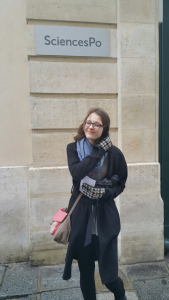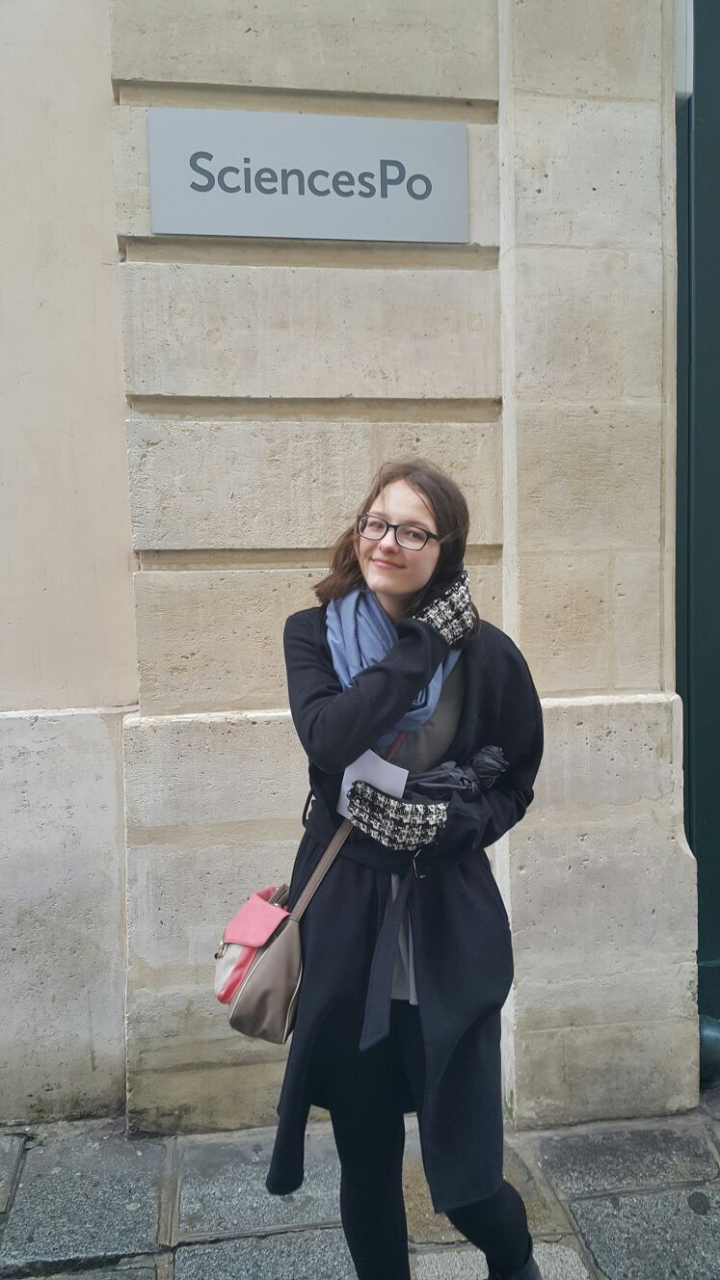Pre-departure:
I can honestly say that I underestimated the administrative load accompanied by a semester abroad in Paris. Selecting courses for the learning agreement was made difficult by the fact that Sciences Po only uploads an updated version of its course modules in the December before the Spring semester. However, the lecturers at Stellenbosch were very relaxed with this and I only had to email them the updated modules once I received them.
Payment for things like welcoming, social welfare and my deposit were also tricky because I could not complete transactions online. I had to go in to my bank to ensure that the right amounts were transferred. This is not too bad but figuring it all out was rather stressful.
Choosing accommodation was not all that difficult for me. I spoke to someone who had done the exchange I was planning a year before me and she recommended Foyer International des Etudiantes as a great place to stay. The only slightly annoying part was that all official correspondence had to be done via post, although they were very helpful when I emailed them.
One important tip that may seem extremely obvious but only dawned on me during my final exams is that you need a valid passport. Mine had expired. Luckily I was able to receive a new one before I had to go home to apply for my visa. A great thing about France is that if you are under 26 you automatically get put on their social welfare which covers a lot of medical concerns. My fee for joining was 215 euros.
One problem I have encountered is with Capago. I wanted to apply for a long stay visa with multiple entries but was told that this was impossible (despite my friend having gotten one). You will have to write a motivational letter explaining why you need a student visa with multiple entries – this is if you want to be able to travel.
Experience at the Host University:
My first week in France was the worst of the exchange. No one warns you about registration and how chaotic it is at Sciences Po. A lot of students, myself included, did not get access to the majority of the courses they had planned. Classes are filled on a first-come-first-serve basis and all of the good classes are gone within two minutes. Literally two minutes. My learning agreement was practically rendered useless as I floundered about trying to sign up for any course that still had slots available. While I enjoyed the classes I took eventually, only one was one that I had planned to do.
Additionally, the language courses can be tricky. You will do a self-assessment and find out what level you are. When Sciences Po asks for this information, you need to give them the level higher than your current level e.g. if you are B1 you tell them B2. In this way you will not find yourself in a course where you simply revise all of the work that you have already done.

A massive problem that I faced was with my French literature module. It is a prerequisite for language courses at Stellenbosch. However, in order to take a French literature course in French, you will need a C1 level of French. Without this you will find it extremely difficult to gain access to the course. I was forced to do my literature course via correspondence because Sciences Po did not offer literature courses in French for my level. Previous students got away with doing French literature courses in English and transferring the credits to French (but no one told me this).
In any event, classes and grading methods are very different in France. They grade on a scale out of 20. In my first few lectures I was told that 19 and 20 are reserved for the Gods and an average grade to expect was anything between 12 and 15. This was not at all what I was used to but our grades get transferred back with this in mind. A big help was the methodology week that we had during welcoming as we were taught what the Sciences Po method of writing essays is. Sciences Po has a very strict and structured way of presenting arguments and many lecturers will expect you to follow this method.
There are many differences between Stellenbosch and Sciences Po.
Firstly, due to the nature of Science Po registration you get to choose whichever classes you want (that are available). Most people choose between lecture courses and seminar courses. The lecture courses are more time intensive, ad you have one two hour class and one two hour conference every week. These lecture courses have final exams as well as presentations throughout the semester. Seminar courses are less time intensive as you will only have one two hour class each week and your grade will be bases on your participation, presentation and final essay.
Secondly, Sciences Po is much more interactive than Stellenbosch. Your are required to participate during your conference and seminar classes. You also have to put together PowerPoint presentations for most classes.
All in all the academic experience is not too drastically different but I did have to adjust my style somewhat.

Welcoming week was also great because the friends I made during that week became my friends for the exchange. For Spring Break about 20 of us went to Spain together. Throughout the semester we would plan trips to other countries or simply do brunches on rooftops above Paris. The people I met on this exchange were some of the best friends I ever made.

Some other administrative details that you deal with during welcoming week is opening a French bank account and setting up a French mobile phone. The banks in France are great for students. I signed up with Societe Generale and received 180 euros just for choosing them. Students pay no banking fees and the Visa card works all over Europe. I chose Free Mobile as my service provider. I paid 2 euros a month for unlimited data, phone calls and sms’ within France. I could also make unlimited calls to South African landline numbers and keep up to date with my parents this way. It was really a bargain. Another benefit is that Free Mobile accompanies you to other European states, although the charges may differ slightly.
Return to Stellenbosch
Saying goodbye to all of my new friends from all over the world was one of the saddest things I’ve had to do. While I knew that this experience was never meant to be permanent, nothing could prepare me for the realization that I would probably never see these people who had become my family away from South Africa.
On a less sentimental note, you will have to close your mobile contract and bank account when you leave. This has to be done through the post. France still relies heavily on the postage system.


